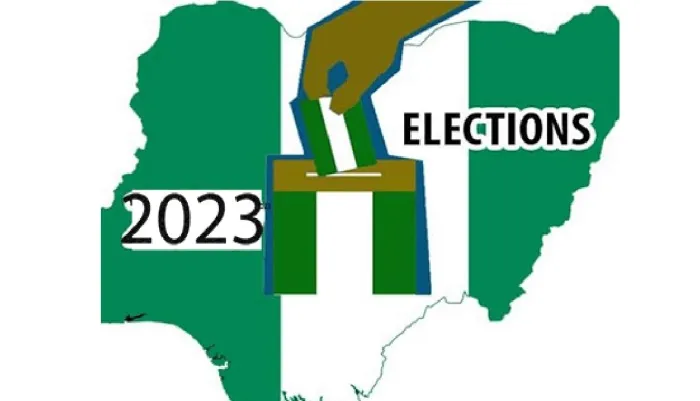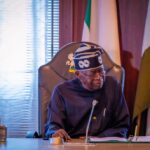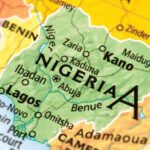If an Abuja High court decides, there is a possibility that the 2023 elections may not hold as scheduled. Some Nigerians in the diaspora, led by Chikwe Nkemnacho and Kenneth Nkemnacho, have sued both the Independent National Electoral Commission, its chairman and President Muhammadu Buhari to allow diaspora voting in line with sections 13, 14, 42 and 17 of the 1999 Constitution, as amended.
Two things can happen from this suit: Either the judge throws out the case, which I think he will, considering the pre-existing constitutional restriction of sections 77 and 117 of the constitution that limits voting to Nigerians domiciled in Nigeria, and the failure of the constitutional amendment just last year; or he grants a ruling in their favour that would compel INEC to include diaspora voting.
If the latter happens, a series of complications arise. Is INEC in any position to arrange for diaspora voting within the weeks left to the election? This is bearing in mind how notoriously cantankerous Nigerian legal processes are to come to a swift conclusion. Already, the High court judge sitting on the case, Justice Inyang Ekwo, has adjourned the hearing on the matter until January 19th when the elections will be barely six weeks away.
The question of the merit of their argument, I will leave to lawyers to debate. What is within my purview is the fact that there is no legislative backing for diaspora voting. When constitutional amendments that allowed for diaspora voting were tabled, of the total 390 legislators present from both the Senate and reps in a joint plenary session in March 2022, only 87 voted for the amendment while the remaining horde of 269 voted against the bill.
Diaspora: Immigration gets airport desks to fast-track passport issuance
NANS Releases List Of New Diaspora Leaders
The two Nkemnachos (I do not know the nature of their relationship) believe that not being allowed to vote from their UK base is equivalent to a violation of their rights as Nigerians. Does it make sense to exclude diaspora Nigerians from voting?
We are talking here about an estimated 15 million to 17 million Nigerians, according to various sources, including the Senior Special Adviser to the President on Diaspora Affairs, Mrs Abike Dabiri-Erewa. That is approximately the same number of votes the winner of the 2019 elections secured. Even if not all of these millions of Nigerians are eligible to vote, as some may be minors, we are still talking about a huge population, one that has contributed $65.34 billion to the Nigerian economy in three years – between 2018, and 2020. This is according to the World Bank.
In 2021 alone, this demographic poured in over $20 billion through official channels into the economy, prompting President Muhammadu Buhari, through his spokesman Garba Shehu, to celebrate them for contributing “four times more than the value of our Foreign Direct Investment.”
Nigerian’s foreign remittance is several folds more than the foreign aid Nigeria receives from international partners and has been known to grant Nigeria significant leverage in negotiations, especially with the European Union.
Yet it is baffling that this population, major stakeholders, as the Nigerian media would want to brand them, have been excluded from voting in a country that prides itself as Africa’s biggest democracy. The irony is that no less than 20 African countries that do not make this claim allow for diaspora vote.
Prof. Yakubu Mahmood, the chairman of INEC and incidentally, a party to the suit filed by the Nkemnachos, seems to be in favour of diaspora voting and seems to suggest that the commission he heads is in favour of it as well.
He was once quoted as saying that, “INEC believes that Nigerians living outside the country should have the right to vote for a variety of reasons: they are citizens of Nigeria interested in the affairs of their own country; they make a considerable contribution to the economy through huge financial inflow; there is a sizable number of Nigerian citizens living outside the country; and Diaspora voting is consistent with global best practices.”
It is a view that is echoed by the Senate Committee on Diaspora and Non-Governmental Organisations headed by Senator Rose Oko. Prof Yakubu made this proclamation when she paid him an official visit at the commission.
But without legislative backing, this will not happen, at least not in the 2023 elections. It is understandable that INEC has been sabotaged by beneficiaries of unfree and unfair elections, politicians whose greatest competence is winning elections by rigging the system.
At the same time, it would be unfair not to acknowledge the little victories that INEC has secured and the small advancements made over the years. The introduction of card readers in the 2015 general elections changed the electoral landscape and there is high confidence that the BVAS system would only improve on the success of the 2015 elections.
INEC has also been advanced by the electoral bill—or the bits of it that were allowed to sail through—that aspired for progress and conspired to trip itself all in one go. Yes, it allowed electronic transmission of results and provided legal backing to contest election results declared under duress (I can’t believe that the law even allowed this in the first place) but it is the same electoral law that refused to give Nigerians the chance to choose candidates of their liking from the party primary level.
Where has that led us? To the candidates running for office today, a good number of them won the party primaries off the back of dollars exchanged with party delegates for their votes. In reality, what this leaves Nigerians with is Hobson’s choice. A choice that in reality is not a choice, not necessarily the best candidates the country could offer.
But a choice must be made and Nigerians in the diaspora have every right to participate in making this choice, just like the citizens of at least 115 other countries that practice diaspora vote. To deprive them of this choice, as those legislators did, is a deprivation of their rights as citizens and is a glaring disenfranchisement of a significant population. It is an injustice that must be rectified at the earliest convenience.
When is that? I don’t think it is possible in these general elections. Legal backing or not, I don’t think INEC is ready for a project on this scale. Certainly not this INEC that is making a dog meal of handing out voters’ cards to Nigerians, many of whom have turned up at designated collection points and have met the usual Nigerian shambolism, expected chaos and frustration. After all, we have perfected the art of making things difficult for ourselves.
Could INEC have collaborated with the Nigerian Postal Services to help deliver voter’s cards to the electorate at designated addresses, preferably well in advance of the elections? Could the post office have employed a simple software to keep track of these voters’ cards in transit to their owners and share this information with the intended recipients? Yes, it is global best practice now and NIPOST needs to find new ways of being relevant.
These are easy things to do with smartphones or text messages and the new technology we have been blessed to have access to. In this way, INEC does not only save us all these katakata, but could partner with another key government agency, allow them to exercise their vast reach, and possibly use it as a test run for mail-in voting. Why not?
So, while INEC prepares for the 2023 elections, while we have our fingers on this pulse, it is also important to remember that millions of Nigerians are going to be disfranchised by the choice that some people made to deliberately exclude others on the grounds of self-imposed mediocrity. There might be challenges but the greatest impediment to change is the will. That is something a country like Nigeria should never lack.

 Join Daily Trust WhatsApp Community For Quick Access To News and Happenings Around You.
Join Daily Trust WhatsApp Community For Quick Access To News and Happenings Around You.


